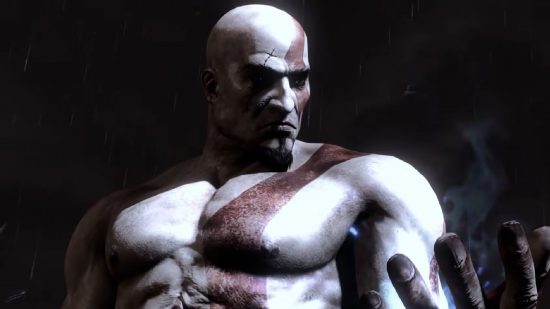Since taking Kratos to the Norse realms of mythology, the God of War series has become staggeringly more popular than it has ever been. Sure, Kratos has been a mascot for PlayStation, alongside the likes of Ratchet and Clank, Cole MacGrath, and Crash Bandicoot. But it’s very clear that turning the God of War series into a third-person action-adventure from a third-person hack-and-slash was a good choice for Santa Monica Studios.
While the Norse saga is no doubt the best the series has been, with us and many others nominating God of War Ragnarok for 2022 Game of the Year, I’m disappointed the TV show will use these modern games as its base. It was confirmed by Amazon that the God of War show will focus on the Norse games, and I think that is a missed opportunity, as much of Kratos’ character development, and his actions, rely on the Greek saga’s stories.
Before we go any further, we’re adding a spoiler warning here for the entire God of War series, including God of War Ragnarok. If you’re hoping to play through the entire series, you should look away now.
Kratos’ story in the Greek saga is undoubtedly a Greek tragedy. He is cursed to fulfil the Greek God of War’s chores, forever having the Blades of Chaos burnt into his wrists. While he does kill Ares and take the throne, he is the black sheep of the Gods, and despite actually being Zeus’ son (yes, the King of the Gods), he is forever burdened after killing his family under Ares’ influence.
He goes on a rampage, resurrecting the Titans and completely killing the Greek Gods, but at the cost of the entire mythology. At the end of God of War 3, the entire world is left in disarray, and all due to the pure rage of one man. It’s a daunting tale of how far revenge can take you. Missing out on key plot moments, like when Kratos kills his family by accident, or when he kills Ares, or his father, are pivotal moments in his character development, and not seeing them within the context of the show could be detrimental.
When you put the Greek saga into perspective of the entire series, some moments in the Norse saga don’t have as much impact for newcomers. For example, Kratos sparing Thor, despite the God of Thunder threatening everyone he loves, is a pivotal moment in the series. The Greek Kratos would’ve killed him without hesitation – something you wouldn’t get if stories from the Greek Saga were omitted.

The recent God of War games don’t rely on your knowledge of the games, for sure, but Kratos himself relies on his past from these games to justify his actions in the Norse saga. The best TV series give thoughtful and meaningful reasons for how these characters act, and putting some of Kratos’ key moments into a backstory or exposition will drastically negate the experience. Some things are better to show and not tell, and the God of War Greek saga is the perfect representation of that. I’d even go as far as to say that there is no actor, aside from Christopher Judge, who can emulate the pain and torture Kratos can go through, without that prior knowledge.
Of course, if the God of War show is done well, the stories of the Norse saga should stand on their own two feet. However, even with our God of War Ragnarok review giving praise to the finale of the Norse part of Kratos’ story, missing out on Kratos’ Greek tragedy would be, well, a tragedy. Kratos hasn’t forgotten his past, and the showrunners shouldn’t either.
At the very least, let’s hope that the God of War adaptation is a fitting one, but with The Last of Us TV reviews praising the well-thought and well done version of the PlayStation videogame, we think that there’s some hope for everyone’s favourite Spartan.
